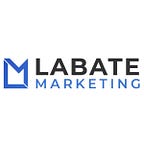Kolbert and McKibben to Host New Seminar at the Greenwich Library
In these uncertain times, it can be hard to maintain a sense of discovery. After the quarantine hit, we were confined to our homes and close social circles — discouraged from interacting with our jobs, our schools, our recreation, and the world at large. For what seemed like a thousand years, we have been trapped in stagnation, looking for anything to keep us busy and focus our minds on whatever a brighter tomorrow might bring. For a brighter tomorrow has been what’s kept many of us going during the COVID pandemic — the hope that we might not necessarily return to “normal,” as many have proclaimed, but that once the quarantine is lifted and the health crisis is at an end, we may embrace life with a new vigor and strive to seize every new opportunity that comes our way. It is in this spirit that the Greenwich Library is now preparing new events for the public due to the decline of social distancing — one of which is a virtual meeting with Pulitzer Prize-winning journalist and author Elizabeth Kolbert, accompanied by fellow author, environmentalist, and activist Bill McKibben. This riveting new discussion about the future of our society and species will be held on Tuesday, April 20 from 7:30pm to 8:30pm. Links to sign up for the event can be found on the Greenwich Library website.
The discussion itself will center on Kolbert’s acclaimed new novel, Under a White Sky: The Nature of the Future. The book talks about the accomplishments and impact of our society and species — theorizing that our impact on this planet is so widespread and influential that we are now living in a new geological epoch: the Anthropocene. Kolbert intends to explore the new world we are creating for ourselves and the impact we have on the environment — including the following anecdotes and stories she has told of attempts to save the planet:
- Interviewing scientists who are trying to preserve the world’s rarest fish, a species that lives in a single, tiny pool in the middle of the Mojave Desert.
- Visiting a lava field in Iceland, where engineers are converting carbon emissions to solid rock.
- Seeing an aquarium in Australia where scientists are creating a new sort of “super coral” that can survive on a hotter globe.
- Visiting a lab at Harvard where physicists are experimenting with an unusual idea — shooting tiny diamonds into the stratosphere in an attempt to reflect sunlight back into space and cool the earth.
Kolbert says that one of the best ways to look at humanity is to see, in her words, “a ten thousand year exercise in defying nature.” She attempts to chronicle humanity’s experience in attempting to control the nature of our planet — for good or bad — as a way to have her audience think about the implications for our future as a species. In a time where recent events have brought us a sense of stagnation and lack of change, such an experience as her and McKibben’s seminar may be just what we need to start thinking about the world we live in and how we can possibly make it better.
